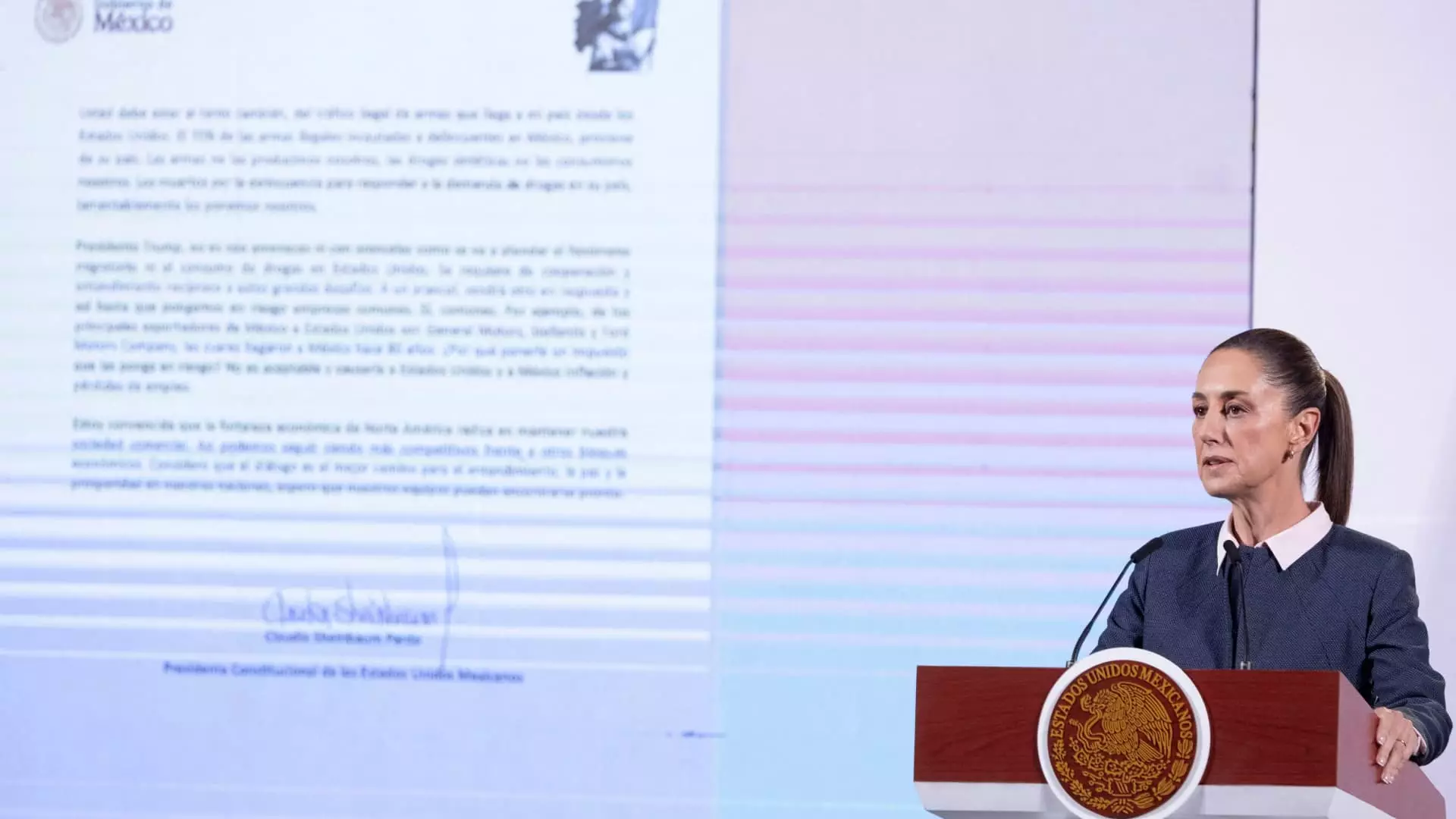As international trade dynamics evolve, tensions often rise due to competing economic interests, particularly evident in the relationship between Mexico and the United States. Recently, Mexican President Claudia Sheinbaum has publicly addressed the potential consequences of a 25% tariff proposed by U.S. President-elect Donald Trump. This tariff has sparked considerable concern among Mexican officials regarding its potential impacts on both nations’ economies, particularly its ability to disrupt trade, hamper job growth in the U.S., and drive up consumer prices.
Potential Economic Fallout: Jobs and Industry Stability
The possibility of the U.S. implementing broad tariffs raises alarm bells in Mexico, especially regarding job security within both nations. As highlighted by Sheinbaum and Economy Minister Marcelo Ebrard, if the tariffs are enforced, they could threaten an estimated 400,000 American jobs. Ebrard’s assertion that it would lead to significant ramifications for the automotive industry underscores the intricate web of relations that define North American trade. Major car manufacturers, such as Ford, General Motors, and Stellantis, could bear the brunt of these tariffs, given that they rely heavily on parts imported from Mexico.
The automotive sector is critical not only for Mexico but also for the U.S. economy, since approximately 88% of pickup trucks sold in America are manufactured in Mexico. The imposition of tariffs would invariably inflate prices, with estimates suggesting an average increase of $3,000 per vehicle. Such price hikes would particularly impact consumers in rural areas, many of whom may have supported Trump’s prior election campaigns.
The discourse between Sheinbaum and Trump, prompted by the looming threat of tariffs, indicates a complex interplay of diplomacy amid economic threats. Trump’s assertion on Truth Social hinted at an agreement regarding migration control—a key issue for his administration—but Sheinbaum clarified that her approach focuses on humanitarian strategies for addressing migration rather than closed borders.
This mutual communication reflects the need for cooperation rather than hostility. Addressing migration concerns could serve as a foundation for broader discussions around tariffs and trade, yet it is critical that these dialogues maintain a focus on economic interdependence rather than retreating into protectionist measures.
At the core of this trade conflict lies the United States-Mexico-Canada Agreement (USMCA), a framework designed to facilitate trade among the three nations. Ebrard’s assertion that tariffs could violate this agreement could imply a significant shift in the negotiation landscape. Analysts predict that the proposed tariffs are not merely a reflection of trade policy but may serve as tactics to leverage negotiations across various socio-economic issues unrelated to direct trade.
Katia Goya from Grupo Financiero Banorte raises valid concerns regarding the implications of a potential trade conflict. She indicates that a deteriorated trade relationship could lead to lower economic growth in the U.S., exacerbated unemployment, and rising inflation. With the review of the USMCA on the horizon for 2026, it is becoming increasingly imperative for the three signatories to reassess and possibly renegotiate elements of this agreement to avoid future conflicts.
Financial analysts, including those from the Institute of International Finance, express apprehensions about the fragile nature of U.S.-Mexico relations. The ripple effects of protectionist policies could jeopardize not just short-term trade but also long-term investments and systemic economic stability. The aversion to tariffs among investors and the automotive industry alike points to a broader fear of destabilization in a sector pivotal to economic success for both countries.
The automotive industry’s influence is a crucial consideration for policymakers, as a considerable share of North American vehicle production hinges on cross-border operations. Ebrard’s projection that profits for major U.S. automakers could evaporate under a blanket 25% tariff signals an urgent need for constructive dialogue aiming toward mutual benefit rather than a headlong dash into protective isolation.
In sum, the ongoing tariff discussions between the U.S. and Mexico reveal a multifaceted challenge rooted in economic interplay, cross-national dependence, and domestic political agendas. Both nations stand at a crossroads where collaborative strategies may foster long-term prosperity, contrasting sharply against protectionist inclinations that could lead to widespread economic ramifications. As countries grapple with the impending consequences of these trade policies, it is clear that ongoing dialogue and strategic cooperation remain critical in navigating these turbulent economic waters.


Leave a Reply